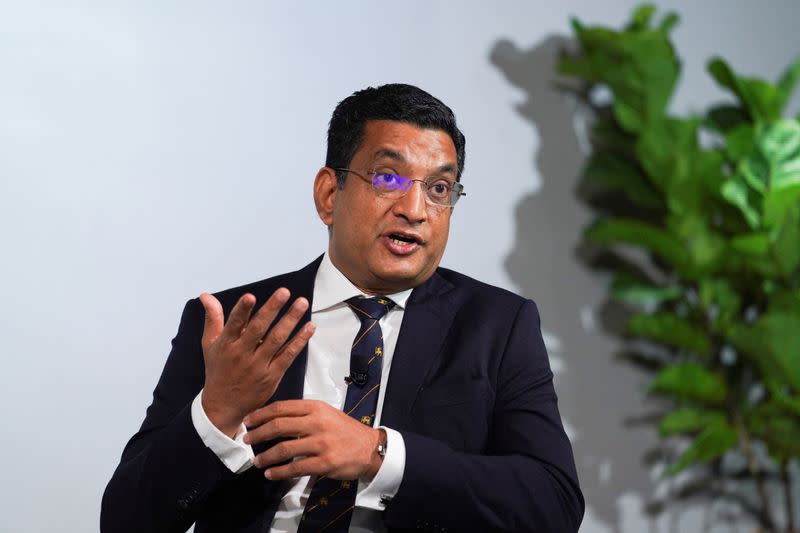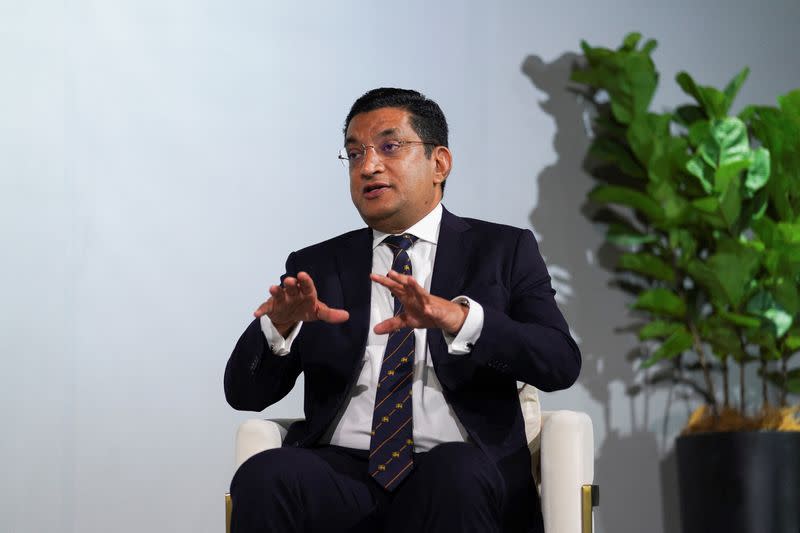By Ankur Banerjee and Uditha Jayasinghe
SINGAPORE (Reuters) -Sri Lanka will wrap up talks with international bondholders on restructuring $12.5 billion in debt within a few weeks, Foreign Minister Ali Sabry said on Tuesday, a major step for the island nation to emerge from its worst financial crisis in decades.
Sri Lanka will also seek to balance its ties with giant neighbour India and China to ensure that there is no difference in dealing with the two, he said, as the rival Asian giants are key creditors and investors but are also jostling for geopolitical influence in the small Indian Ocean country.
"Hopefully within a couple of weeks," Sabry said in an interview at the Reuters NEXT conference in Singapore, when asked when the nation's bond restructuring efforts with creditors will be finished.
"Towards the end of this month, officially, we are done and dusted with the restructuring process, then of course, in line with that, we need to start payment," he said.
Sri Lanka secured a provisional agreement with some of its bondholders to move forward on restructuring its international bonds last week but now needs the other private creditors and the International Monetary Fund (IMF) to also agree.
The country, which has $37 billion in external debt in total, clinched an agreement with its official creditors including Japan, China and India in late June to restructure $10 billion in debt.
In total, the debt rework is estimated to save Sri Lanka $8 billion in write-offs and delay capital repayments by at least four years.
Sri Lanka will use this opportunity to restart about a dozen stalled, foreign-funded development projects and promote economic growth, Sabry said.
Sri Lanka needs to continue reforms including imposing property taxes, revamp loss-making state-owned companies and improve dollar reserves to put its economy fully on track, the IMF said in its latest review.
BALANCING INDIA, CHINA
A country of 22 million, Sri Lanka's economy is heavily dependent on foreign tourists and investments while its strategic location on a major east-west shipping route close to the southern tip of India makes it a key political player.
India, which has strong cultural ties with Sri Lanka, and China have competed for influence in Colombo for years and the island nation has often been caught in their rivalries.
India is also critical to Sri Lanka's tourism, port development and renewable energy sectors with the two countries planning to connect their power grids eventually, Sabry said.
Closer ties with southern Indian states such as Tamil Nadu will fuel "a lot of synergies" between the two countries that will help Sri Lanka's economy growth faster.



